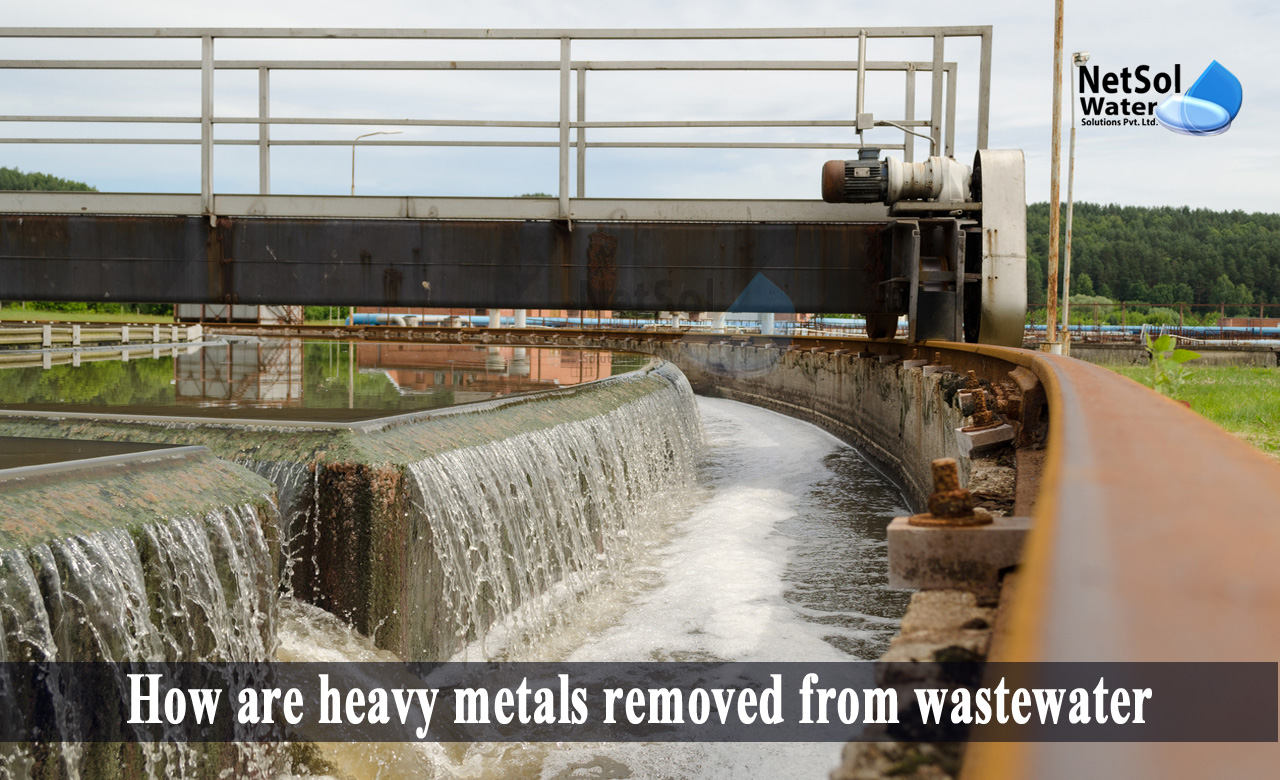Several industries release heavy metals into the water. They may be poisonous or carcinogenic in nature and pose serious risks to both aquatic environments and people.
Thus, one important industrial treatment requirement in contemporary production is the removal of soluble heavy metal ions, from wastewater.
Why to remove heavy metals from wastewater?
Different organic and inorganic contaminants are present in industrial discharge. Heavy metals, which can be poisonous or carcinogenic and are hazardous to people and other living creatures, are among these contaminants.
Sources of heavy metals in wastewater
Lead (Pb), zinc (Zn), copper (Cu), arsenic (As), cadmium (Cd), chromium (Cr), nickel (Ni), and mercury, are the heavy metals from diverse sectors that are most concerning.
They come from substances like pesticides, fertilizers, fixing agents (which are added to dyes to increase dye adsorption onto the fibers), pigments, and bleaching agents. They can also come from metal complex dyes.
Other processes that generate waste streams containing heavy metals include:
· Electroplating
· Nickel plating
· Printed circuit board manufacturing
· Metal forming operations
· Battery recycling, and
· Mining operations
How are heavy metals removed from wastewater?
There are two methods that are more effective than traditional ones for removing heavy metals from wastewater: precipitation and ultrafiltration.
Both can save manufacturers money, and a trustworthy provider can suggest which method will produce the greatest outcomes, based on a number of application-specific factors.
1: Common removal methods involve precipitating the metals in an insoluble form, such as hydroxides, sulphides, carbonates, or a combination of these, then removing the precipitate by tubular ultrafiltration (UF), for high-quality filtrate or traditional clearing.
2: The resulting high-quality permeate can either be discharged or fed straight to reverse osmosis machinery, for reuse. Although, solids concentrations of up to 18% can be processed by tubular UF, the most productive operation typically takes place between 3 and 5% solids.
3: Due to its ease of use, hydroxyl precipitation is a widely used technique. Although, sulphide precipitation offers certain benefits, it is important to carefully monitor pH and ORP, to reduce the possibility of creating dangerous levels of hydrogen sulphide gas.
4: It is also possible to use hydroxide and sulphide precipitation in two separate processes, especially when complexes or chelates are present.
5: Calcium or sodium carbonate co-precipitation can also be beneficial.
6: For the removal of heavy metals from wastewater, adsorption methods are widely utilized. Activated carbon is the most popular adsorbent and produces the best results, but its use is constrained by its expensive price. Its production and regeneration costs are significant.
7: Since, heavy metals are harmful even at trace amounts, inexpensive adsorbents are necessary for an environmentally safe technique of their removal. Adsorption is a cost-effective method that has gained popularity for its minimal waste disposal benefit.
Conclusion
Wastewater treatment is a crucial issue that has been discussed at the highest levels of government, and by big businesses on a global scale.
Companies can use a variety of tactics to develop a sustainable strategy that goes beyond compliance, and starts the process of improving the quality of the world's water, by removing heavy metals from water and wastewater.
How can we assist?
Netsol Water has assisted in the resolution of hundreds of water-related problems in industries, by deploying a wide range of specialist water treatment and wastewater treatment technologies, to remove heavy metals from a wide variety of industries.
Netsol Water is Greater Noida-based leading water & wastewater treatment plant manufacturer. We are industry's most demanding company based on client review and work quality. We are known as best commercial RO plant manufacturers, industrial RO plant manufacturer, sewage treatment plant manufacturer, Water Softener Plant Manufacturers and effluent treatment plant manufacturers. Apart from this 24x7 customer support is our USP. Call on +91-9650608473, or write us at enquiry@netsolwater.com for any support, inquiry or product-purchase related query.



